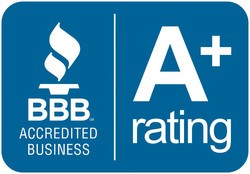By John G. Merna, Esq.
Inflationary pressures have pushed sub-prime car loan delinquencies to the highest level since 2007, according to Bankrate.com. As many consumers are behind on car loans as was the case as we entered the 2008-2009 Recession.
As is always true in high-inflationary times, fixed-income and lower-income families feel the pinch of higher prices before the most Americans. This demographic is also the primary market for sub-prime vehicle loans, which are a market of loans that provide for higher interest rates due to the marginal credit rating of the purchaser. In other words, inflation, which is at a 40-year high, and other factors are causing car owners with sub-prime loans an enormous amount of financial stress. With little optimism in the press that this trend will reverse quickly it is likely that the delinquency rate will continue to trend higher and the number of repossessions will also increase in the coming months.
Myth About Repossession
Many people have mistaken concepts about when a car company can repossess a car for missed payments. Some believe a car cannot be repossessed if you continue to try and work with them. FALSE. Others believe the vehicle is safe until you miss three payments or more. – FALSE. Yet others believe the lender cannot repo the vehicle until they advise you in advance of their intention. – FALSE.
The truth is if you are one day past the contractual grace period for getting a payment in the car can be repossessed. Granted very few companies are that strict. However, in the sub-prime market lenders have less tolerance for late payments because they are aware the further a person gets behind, especially one whose credit was marginal when the loan was taken out, the greater the chance they will default completely – meaning not pay the loan.
Rising Prices Impacting Disposable Income
With gas prices almost doubling and everything from food to building supply shooting up in price, consumers are putting out more on the basic monthly costs in the last two years. This upward inflationary pricing pressure reduces the disposable income available in household to make revolving credit and car payments. Supply-chain shortages still hampering the movement of goods. These delays create scarcity which elevates price due to demand out stripping supply.
In inflationary times the best advise is to defer large purchases especially vehicles and work on paying down debt. The price of vehicles is also increasing at record rates, which means if you buy now you are likely to be over paying.


Used Car Price Skyrocketing In The Past 18 months.
If you are a car owner who purchased a vehicle in the last 18 months you have also been the victim of car price inflation. Higher car prices are causing higher monthly payments. According to the U.S. Bureau of Labor and Statistics, car prices rose by more than 40% between January 2021 and January 2022. (USA TODAY) This mind-numbing increase has force monthly payments on already high-interest rate sub-prime loans into the $600 or more range, not including the higher insurance rates and personal property taxes that are also seeing inflationary pressure.
Rolling over Negative Equity.
Also contributing to upward direction of sub-prime monthly car payments is the mistaken financial decision to roll negative-equity from a trade-in vehicle into the loan on a new car. In some cases, there is no option. However, realize that purchasing a vehicle when prices are high means more people will need to take out longer loans. Traditionally, vehicle loans spread the payment over five years. In sub-prime lending borrowers are more commonly taking out six, seven, or eight year loans. If the vehicle does not last that long borrowers are increasing their chance that they will be faced with negative equity at some point quickly.
My best advice is to keep in the forefront of your mind is that a car is a “depreciating asset” meaning it only decreases in immediate value starting the moment you drive off the lot. It is not an investment. You might argue that it could be an investment when it becomes an antique and starts getting more valueable. The reality of this position is clear if you spend any time watching national collectible auto auctions. Only certain cars, not all cars, become true treasures that you can call investments. Most cars may go up a little after 15 years but you would be better investing your money elsewhere for greater gains.
What Can Be Done To Avoid Repossession?
A Chapter 13 reorganization bankruptcy can stop a vehicle from being repossessed and in some situations lower the monthly payment amount. Often another approach in inflationary time is to do a Chapter 7 bankruptcy to eliminate your other debt and thereby free up the funds to afford the rising prices and making monthly car payments.
Whatever your financial stress Merna Law offers a free telephone consultation to go over your situation and determine the best course of action to deal with your financial stress. Give us a call today.
Keywords: behind on car payment, car payment delinquency, repossession, Chapter 13.
